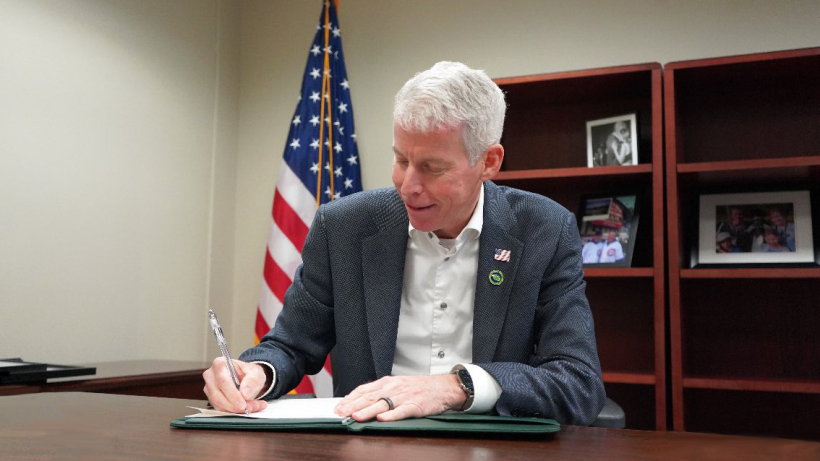New Energy Secretary Orders R&D Portfolio Review

Energy Secretary Chris Wright signs his first secretarial order.
Department of Energy
Energy Secretary Chris Wright issued an order
The order announces that the Department of Energy will “comprehensively review” its R&D portfolio to prioritize the pursuit of “true technological breakthroughs” that support America’s global competitiveness. As examples, it cites nuclear fusion, high-performance computing, quantum computing, and AI.
“As part of that review, the department will rigorously enforce project milestones to ensure that taxpayer resources are allocated appropriately and cost-effectively consistent with the law,” the order adds.
The order also states that DOE will focus on “technologies that will advance basic science, grow America’s scientific leadership, reduce costs for American families, strengthen the reliability of our energy system, and bolster America’s manufacturing competitiveness and supply chain security.” It then adds that R&D efforts will prioritize energy technologies that are “affordable, reliable, and secure,” listing fossil fuels, advanced nuclear, geothermal, and hydropower as examples.
The order does not reference wind and solar, two other sources that Wright said in his confirmation hearing
The order criticizes policies that aim to achieve net-zero carbon emissions, arguing that they achieved little in reducing global greenhouse gas emissions while raising energy costs, threatening the reliability of the energy system, and “undermining our energy and national security.” It adds that the department will expedite the approval and construction of energy infrastructure, pursuant to President Donald Trump’s recent executive orders.
In his confirmation hearing, Wright acknowledged that climate change is an issue. However, he has been a vocal skeptic
The order also highlights nuclear power, specifying next-generation nuclear technology as a priority for rapid deployment. “The long-awaited American nuclear renaissance must launch during President Trump’s administration,” it states.
Wright also announced
Wright was confirmed on Feb. 3 with 59 senators voting in favor, including seven Democrats and one independent. Among the Democrats voting in favor was Sen. Martin Heinrich (D-NM), the ranking member of the Senate Energy and Natural Resources Committee, which oversees DOE.
“While I do not agree with Mr. Wright on a number of issues, he has committed to working with us in good faith to continue investing in our national labs in New Mexico and across the country, accelerating transmission infrastructure to meet our nation’s skyrocketing demand for clean power, and, most importantly, upholding the law and implementing Congress’ vision,” Heinrich said in a press release
Sen. John Hickenlooper (D-CO) also voted in favor, emphasizing Wright’s scientific background. “He believes in science and supports the research that will deliver the affordable, reliable, and clean energy that will not only lower costs but make our country more secure,” Hickenlooper said in a press release.
Wright worked on fusion as a student at MIT and solar at UC Berkeley before moving into the private sector. In a welcome address
“I quickly realized I didn’t have the patience for basic science. It’s super cool. I love it, but I realized I’m an impatient guy,” he said.


